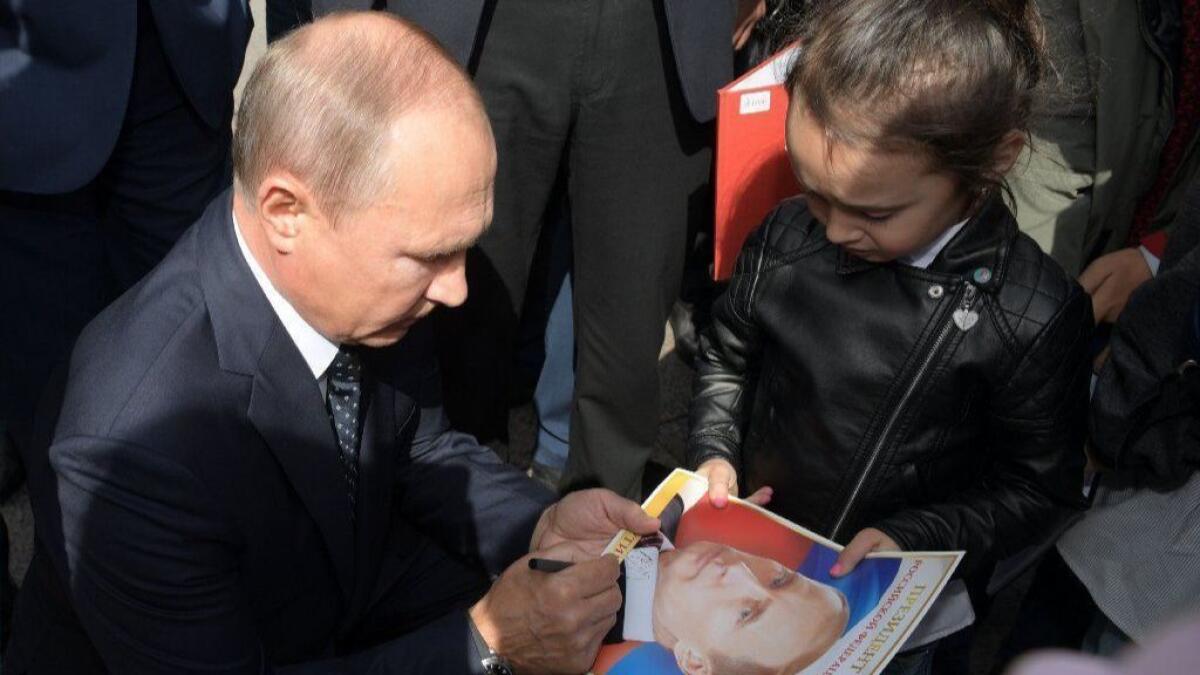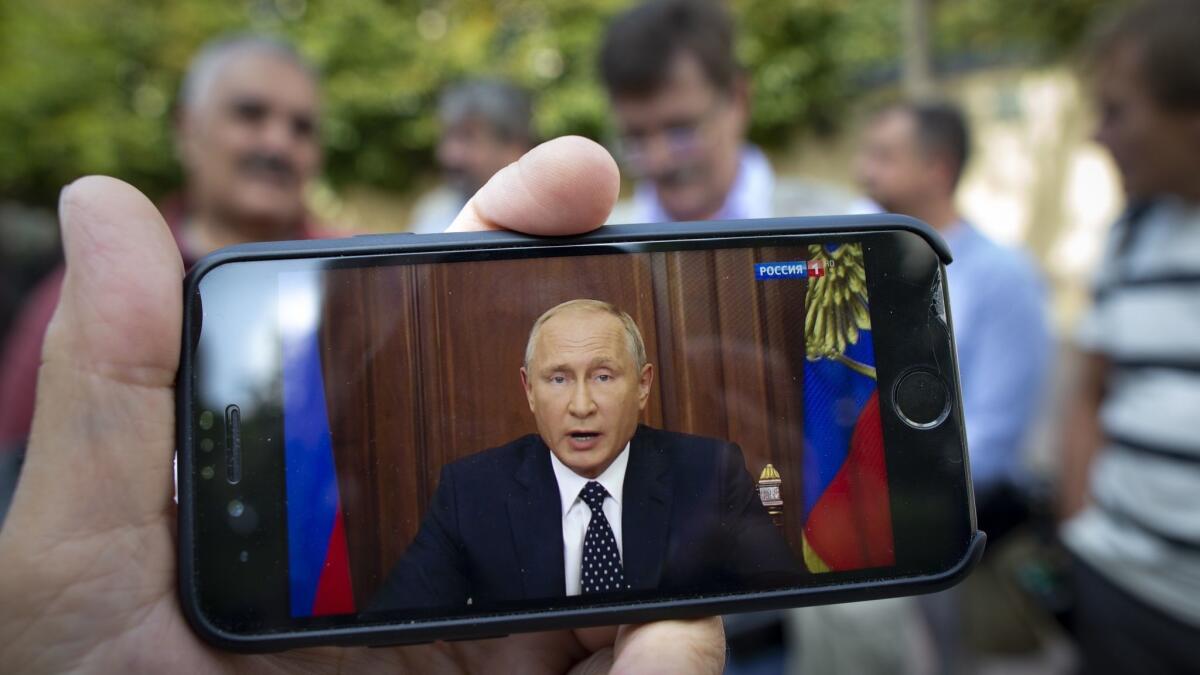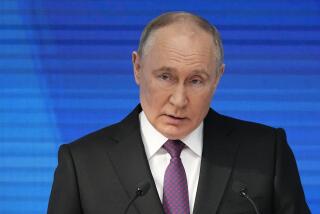With his approval rating falling and street protests rising, Putin backtracks on pension reform

Reporting from Moscow ‚ÄĒ Russian President Vladimir Putin appealed to Russians to accept a softened version of an unpopular pension reform plan Wednesday that has sparked massive street protests and the sharpest decline of the Kremlin leader‚Äôs domestic approval ratings in four years.
In a televised address aired on state media, Putin said the controversial reforms to the country’s retirement age were essential as Russians grew older and its working-age population continued to decline.
Without raising the retirement age, Russia‚Äôs pension system ‚Äúwould crack and eventually collapse,‚ÄĚ Putin said.
‚ÄúIf we hesitate, this could jeopardize the stability of society, and hence the security of the country,‚ÄĚ he said, according to a version of his speech posted on the official Kremlin website.
The proposed reforms come at a time when Russia’s economy is suffering under Western sanctions and low global oil prices. The reforms were proposed in spite of a 2005 pledge from Putin, who has ruled the country for 18 years and was reelected in March for another six-year term, to never raise the retirement age.
On Wednesday, Putin backtracked and offered a concession to the unpopular reforms, saying he would support a plan that gradually raised the retirement age for women from 55 to 60 instead of 63, as stipulated in the original plan that already passed in the first parliamentary readings. The retirement age for Russian men would increase from 60 to 65, as originally proposed, Putin said.

While most economists agree that Russia’s pension system and retirement age need to be reformed, many argue that the proposed reforms would hurt pensioners who rely on the meager monthly payments to survive.
The average monthly pension in Russia is about $195. While many Russians work well into their 60s, they say the ability for women to begin collecting pensions at 55 ‚ÄĒ or men at 60 ‚ÄĒ helps greatly in covering daily expenses.
Russia’s parliament announced the proposed reforms quietly on June 14 while the nation’s attention was focused on the opening day of the World Cup, which Russia hosted this year.
Since then, opposition to the reform proposal has grown, including nationwide street protests, online petitions and condemnations from labor unions, the majority of which are typically pro-Kremlin.
The proposed reforms cut into Putin’s approval rating, which dropped from 82% in April to 67%, according to the latest figures from the independent Levada Center.
A poll this month commissioned by Vedomosti, a popular Russian business newspaper found 84% of those surveyed opposed the reforms.
Capitalizing on the public outcry, Alexey Navalny, an opposition leader, called for another round of protests in 85 cities on Sept. 9, the day of Russia’s regional elections, including for Moscow mayor.
Navalny became Putin’s main political foe last year after organizing the biggest anti-government protest since Putin came to power in 2000. On Tuesday, a Moscow court sentenced Navalny to 30 days in jail for violations stemming from protests last January, a move his supporters said was designed to keep him off the streets for the Sept. 9 demonstrations. It is the second time Navalny has been given 30 days in jail for organizing demonstrations against the Kremlin.
While Russia has one of the lowest pension ages of the developed world, it also has one of the lowest life expectancies. The World Health Organization in 2016 estimated Russian men’s life expectancy at 66.4 years, while Russian women can expect to live to 77. In the U.S., life expectancy is 76 for men and 81 for women.
If the pension reform goes though, it will be the first of its kind since Soviet leader Joseph Stalin was in power.
Throughout the summer, television news avoided images of the protesters and instead told viewers about the wonders of modern retirement life in today’s Russia.
The president initially distanced himself from the heated debate and the street protests, saying it was a matter for the parliament to decide. But most Russians understand that the Duma, the country’s parliament, accomplishes little without Putin’s approval or direction.
When the Kremlin announced that Putin would address the country on Wednesday, public anticipation was palpable. State media on Wednesday morning showed a countdown ticker to Putin’s noon televised address.
In his 30-minute speech, Putin, 65, who receives a military pension as a former KGB officer, appealed to Russians to support the reforms.
‚ÄúI would like to emphasize once again that we have to take a difficult, difficult but necessary decision,‚ÄĚ he said.
Twitter: @sabraayres
Ayres is a special correspondent.
More to Read
Sign up for Essential California
The most important California stories and recommendations in your inbox every morning.
You may occasionally receive promotional content from the Los Angeles Times.











